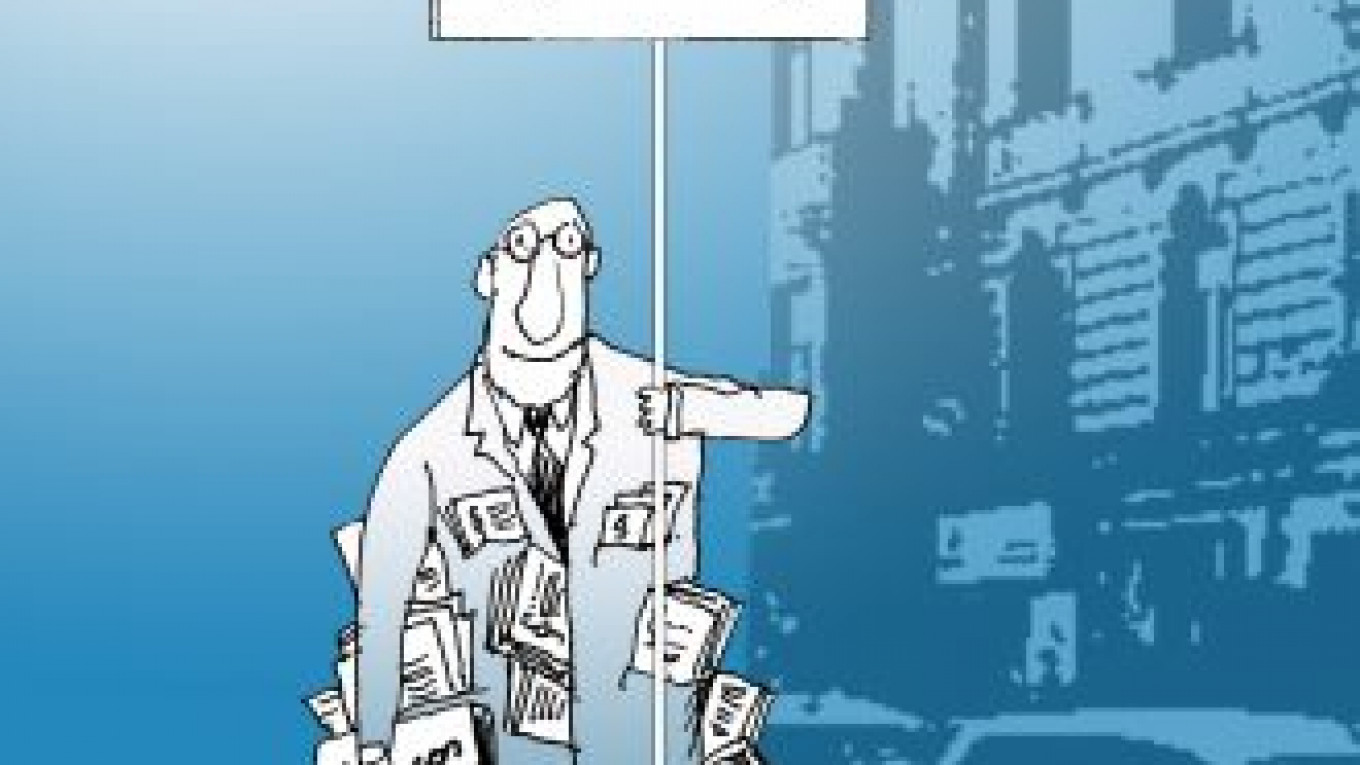Tom Cruise was looking down on the protest at Mayakovskaya this week. He was in an ad on a roof advertising "Mission Impossible 4," a film that premieres next week with an opening shot of a bomb blowing up the Kremlin. Down below, a different threat to the Kremlin was being herded off to police stations at great speed by the men in shiny black helmets.
Hundreds have been arrested over the course of the two protests this week, and many more could follow at the next planned meeting Saturday.
If that happens, the detainee will be thrown into a world with strict rules, which are often ignored, a world where the only way to get free, to beat the law, is know the law better than the ones who have just hauled you off a Moscow street.
That, at least, is the impression from a document, a guide to what to do if you are arrested at a protest, that is doing the rounds on the Russian Internet. The was posted by Ivan Ninenko, a young lawyer, who organized a legal team for protesters at the G8 summit in St. Petersburg in 2008.
The first thing is documents. Make a copy of your passport and bring that with you. That way your passport won't get taken from you. If they say anything, cite point 17 of the official regulations on Russian passports, which say you must take good care of the document.
The advice has a set list of phrases to be used such as: "I took part in a peaceful demonstration, did not commit any unlawful acts and will give more detailed testimony after I have consulted with my lawyer."
Knowing the weakness of the police is as important as ensuring things are done legally. One weakness is a deep desire to do as little work as possible. Ninenko was arrested along with lots of other protesters once and the police tried to take their bags away. After he asked for an official paper listing all of the objects in the bag, required by law, the police realized that this would require a lot of paperwork and forgot about it.
Another piece of advice is to make sure that your case is looked at according to your residential address and not by the police station location. "In every area of the city, judges, the head of police and prosecutor work in one chain … you need to break that chain."
Oh, and you do have the right to a phone call. The new law on the police puts in this right, although many police may say that you've been watching too many American movies. Just refer him to article 14, point 7 of the law on the police.
The document is directed at Russians, but Ninenko had one bit of advice for non-Russians. Even if you speak perfect Russian, insist on your right to have a translator. It might be more bother than it's worth for them.
A Message from The Moscow Times:
Dear readers,
We are facing unprecedented challenges. Russia's Prosecutor General's Office has designated The Moscow Times as an "undesirable" organization, criminalizing our work and putting our staff at risk of prosecution. This follows our earlier unjust labeling as a "foreign agent."
These actions are direct attempts to silence independent journalism in Russia. The authorities claim our work "discredits the decisions of the Russian leadership." We see things differently: we strive to provide accurate, unbiased reporting on Russia.
We, the journalists of The Moscow Times, refuse to be silenced. But to continue our work, we need your help.
Your support, no matter how small, makes a world of difference. If you can, please support us monthly starting from just $2. It's quick to set up, and every contribution makes a significant impact.
By supporting The Moscow Times, you're defending open, independent journalism in the face of repression. Thank you for standing with us.
Remind me later.






